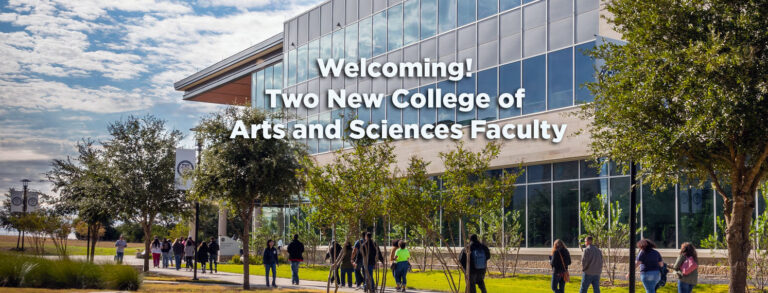Why Earning a Master of Science in Nursing Administration Degree is More Important Now Than Ever Before

The never-ending conversation about healthcare in the United States is a black hole of opinions and rhetoric that can suck the life out of any interaction. But while most people lean one way or another on how the healthcare system can be fixed, there are a few facts that are driving the narrative and shaping the way we view the future of healthcare.
Not the least of these is the nursing shortage. With nurses already overworked and hospitals, clinics, and doctors’ offices running short-staffed environments, future projections show that the divide between work and available workers is just going to increase. According to the American Association of Colleges of Nursing (AACN), the increasing need for nurses is driven by an emphasis on preventive care and growing rates of chronic conditions such as diabetes and obesity. The AACN says employment opportunities for Register Nurses (RN) will increase by 5% between 2021-2031, reflecting projections of more than 203,000 new nursing positions being created each year. Throw in the fact that more than one quarter of registered nurses plan to leave the field or retire in the next five years, and the nursing shortage is more than just an itchy reaction to a seasonal allergy—it’s a symptom that if unchecked will blossom into an epidemic.
On the Bright Side
Despite the current shortfall, it’s not all doom and gloom for the nursing profession. RNs comprise one of the largest segments of the U.S. Workforce and are among the highest paid workers. According to the Bureau of Labor Statistics (BLS), nearly 55% of RNs work in general medical and surgical hospitals with an average salary of $77,600 per year.
Nursing colleges are enrolling more students than in previous years. According to AACN, enrollment in entry-level BSN programs in 2024 increased by nearly 5%, and students enrolling in RN-to-BSN programs increased nearly 2% over the previous year. Enrollment in BSN programs has shown increasing numbers in 23 of the last 24 years. The increase in RN-to-BSN enrollment broke a five-year trend where numbers were declining. In all, the future looks promising for nursing programs which is good because those numbers will need to continue to increase to meet the demand.
Additional Education Is Paramount
As the demand for RNs increases, so will the job duties and responsibilities. Nursing administrative positions will become more relevant and the need for additional training and education will increase. A Master of Science in Nursing (MSN) degree in Administration prepares registered nurses to transition into roles such as nurse manager, clinical leader, director of nursing, or even chief nursing officer. These positions are essential to maintaining quality care. And as healthcare becomes more complex and data driven, leaders in the field will need additional training in data analytics and problem-solving methodologies.
The newly formed MSN in Administration at A&M–Central Texas states in the program description that the degree is meant for RNs who “desire to become a change agent, administrator, educator, and innovator in the complex healthcare system.” Individuals seeking these aspirational goals will inspire the next crop of nurses and influence healthcare for years to come.
Nursing administrators perform such job duties as managing personnel, recruiting and hiring nurses, setting work schedules, providing training and mentorship, and overseeing staff performance. They can provide valuable insight on policy and healthcare issues. They address safety concerns for patients and staff, deal with patient and family conflicts, and fight for resources needed by patients and nursing staff.
Personal Benefits of an MSN
Earning a master’s degree isn’t the easiest thing you’ll ever accomplish, but it can be one of the most rewarding. Nurses already work crazy schedules and trying to find time to accommodate additional study and coursework can be intimidating. You must convince yourself that the benefits outweigh the risk.
There is a lot at stake, and the curriculum can, and should, be demanding. You will be dealing with complex theories and practices, mastering advanced concepts, and balancing the responsibilities of your current job and family life while squeezing in time for study. But the personal benefits can be rewarding. As a nursing administrator you will affect policy and change, and influence others by creating positive, enjoyable work experiences for nurses under your charge. You can have a much greater influence on patient care and satisfaction, and you can see that highly educated and motivated nurses experience rewarding careers and stay engaged in the profession. Nurses with an MSN also make more money. According to the BLS, many earn more than $125,000 annually.
Nursing is a noble profession, helping people every day. Nurses can see the impact they have on society and culture and the world around them. So much of what they do is underappreciated and sometimes goes unnoticed but knowing that you helped someone when they needed it the most is truly rewarding.
Keys to Earning an MSN
It’s important to look at all the pros and cons before enrolling in an MSN program. Here are some key things to remember that can make your MSN journey a little easier:
- Understand your motivation. Are you pursuing the degree for career advancement, or personal interest and development? Either is a great reason, but knowing what you seek to gain can be key for your internal motivation and understanding of the sacrifices that you might have to make while enrolled in the program.
- Know the cost. Understand the amount of time, money, and everything else that factors into this type of commitment. You should be well-prepared for what you’re going to face. Set aside time to study and stick with your schedule. Fortunately, you can find programs where much, if not all, of the curriculum is taught online, giving you the flexibility to set your own study schedule.
- Shop and compare. Not all programs are created equal. Find one with a curriculum that really gets to the point of what you want to learn, and one that doesn’t break the bank. Education is expensive, but some programs are much more affordable than others. And they still provide high-quality, accredited education taught by experts who have been where you are now.
- Take advantage of resources. Find a university that provides student assistance. Whether it’s study aids, tutors, writing assistance, study tips, time management advice, or you just need someone to talk to, you can find those resources for students that can help calm the storm and keep you from being overwhelmed.
- Connect with your peers. Remember that everyone in your program is experiencing similar circumstances. Connecting with peer groups can be a great source of encouragement and increased motivation.
- Remember that you can do it. If you’ve been accepted into a master’s level program, then you have what it takes to complete the degree. Graduate schools screen candidates to make sure they are prepared for what they are about to face. You might doubt yourself, but you’re the only one. Understand that it’s only for a short period of time and your future will be much brighter because of it.
In Conclusion
Regardless of where you stand on the health-of-healthcare continuum, it goes without saying that nurses are an incredibly important component of proper care—and there aren’t enough of them. Advanced training will become increasingly more important as the demand for nurses continues to grow. With the right education, motivation, and commitment, you can become a high-value nursing administrator who truly affects change throughout the system.
If you’re considering an MSN, now is the time. Do the research. Find a program that is right for you. Take an extra blood pressure pill and dive in. You’ll find a community waiting to assist you when treading water gets to be a little difficult.
by Jonathan Petty, Director
Enrollment Marketing and Communications





